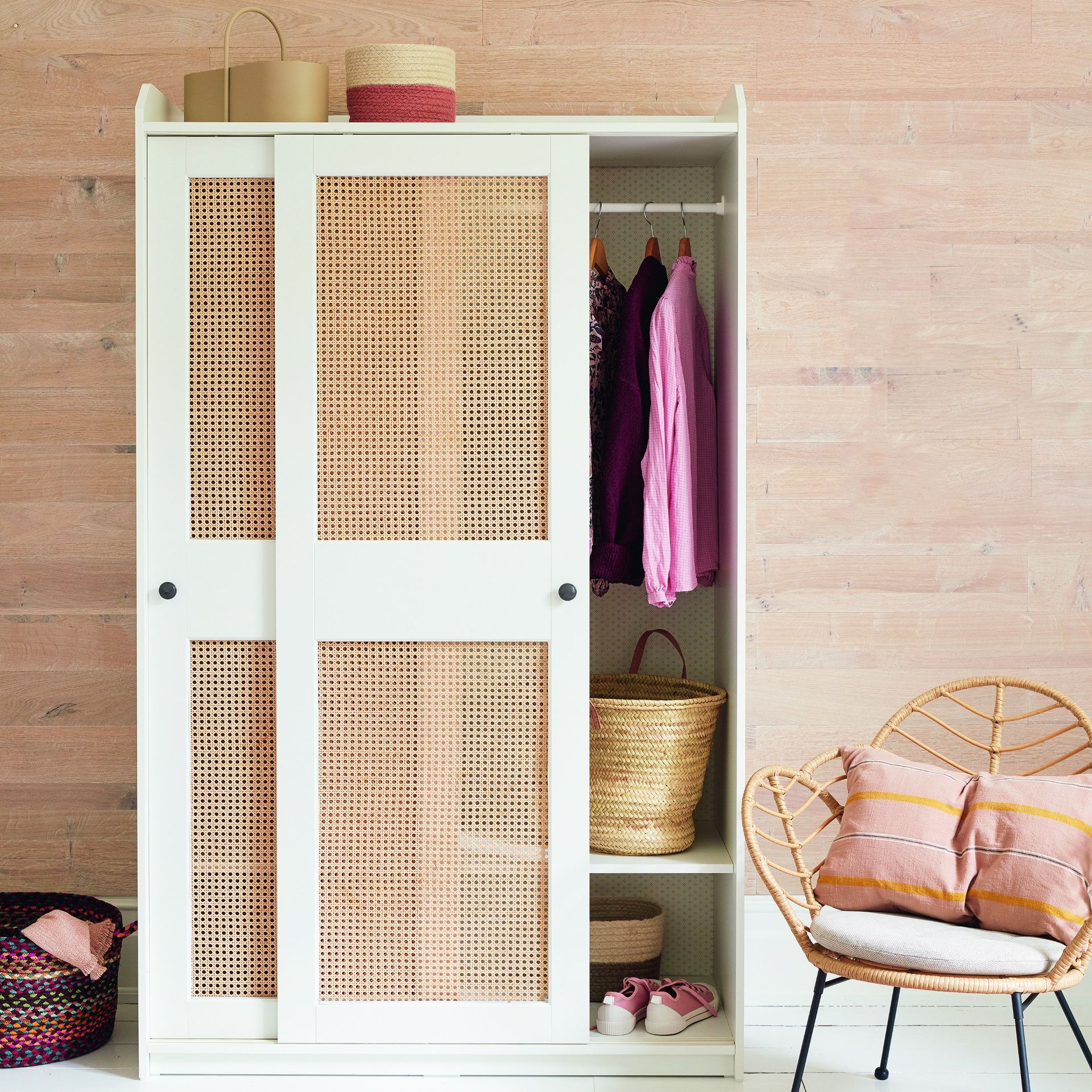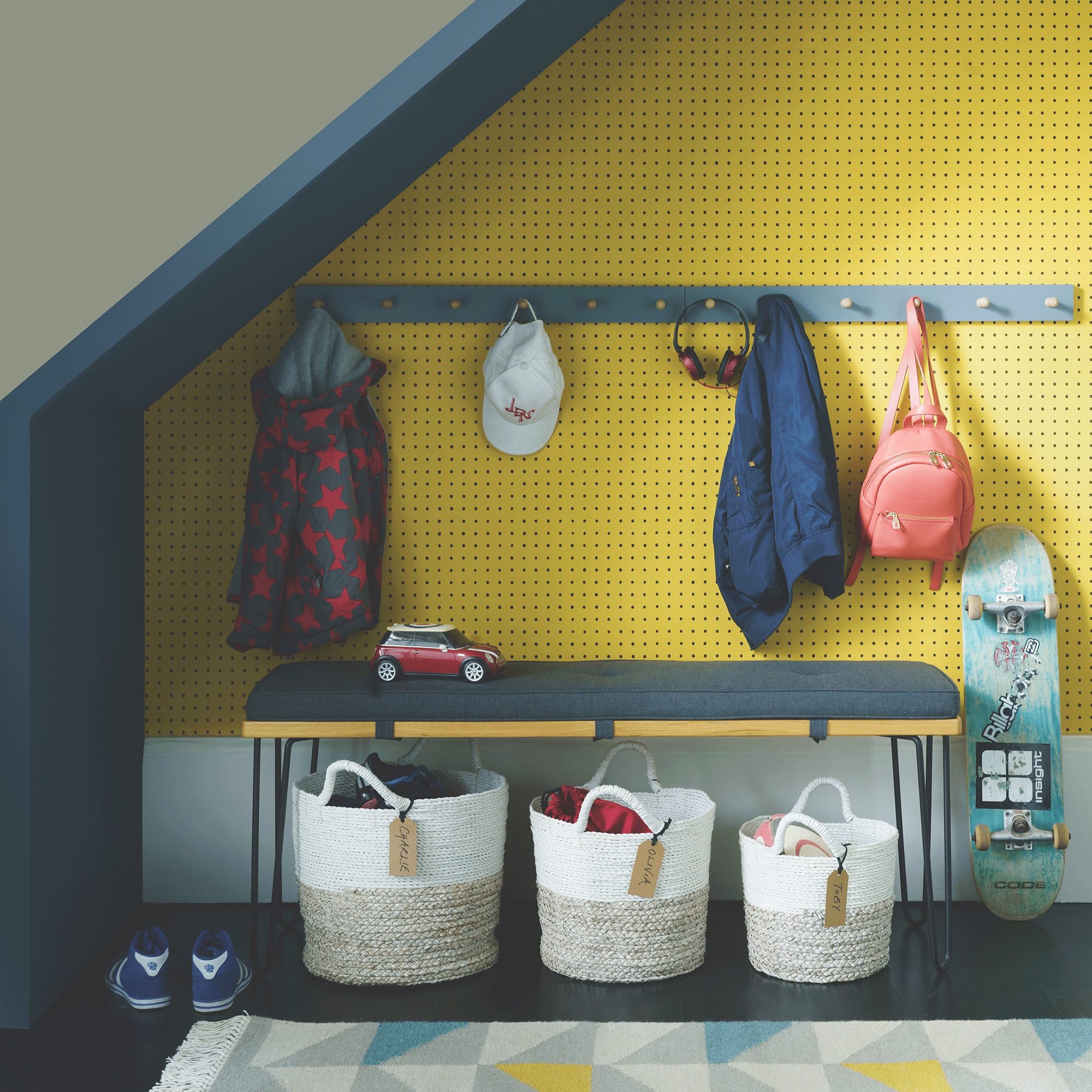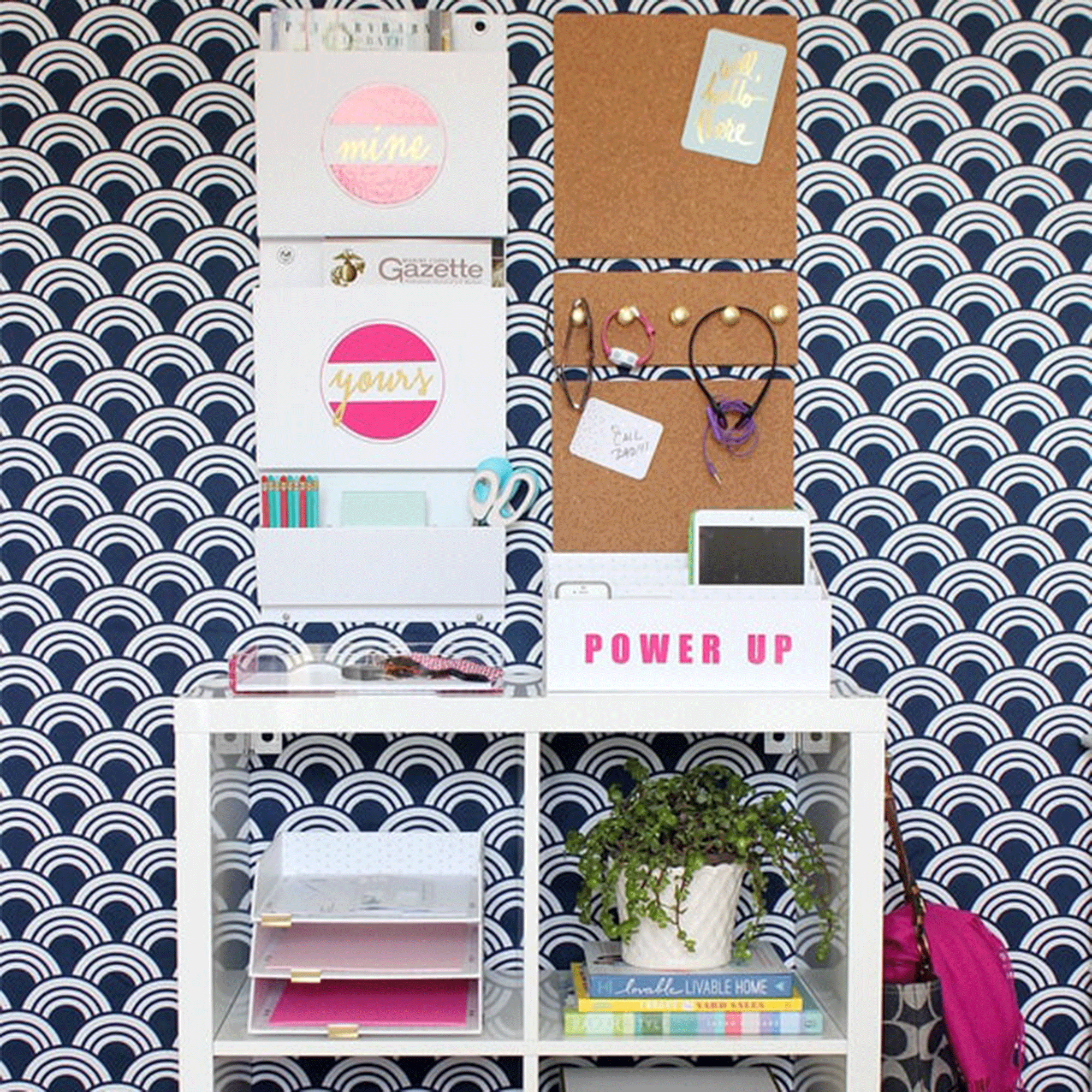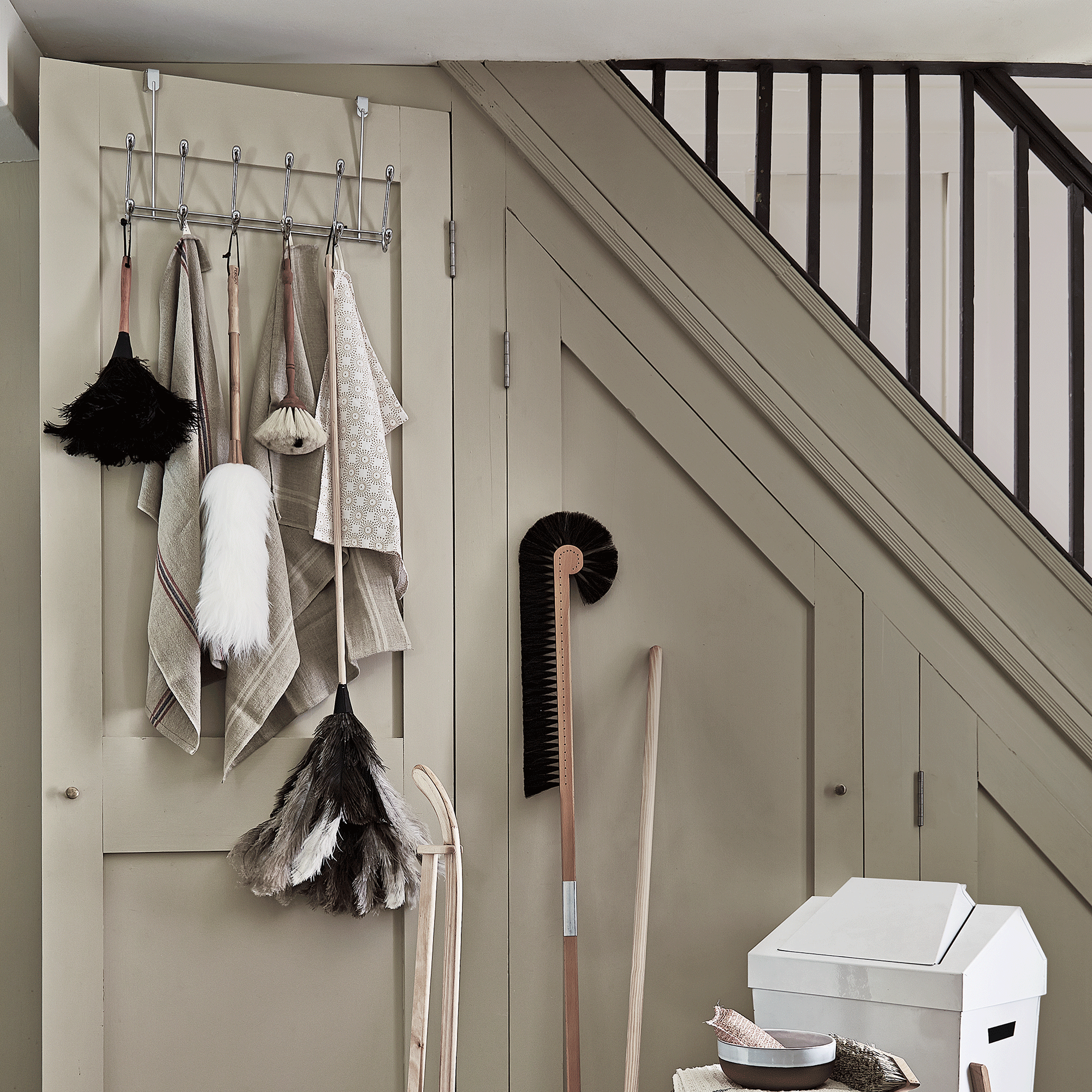The real reason it feels like the laundry is never finished - how to reset your routine and avoid overwhelm
And what the experts do to stop laundry overwhelm – and how you can do it, too



Do you feel that the laundry is never finished? That there are always clothes to wash, sheets to fold, shirts to iron and outfits to be returned to drawers and wardrobes?
The bad news is, you're right. The laundry is never done. The good news is, that's normal; you're not a failure if the socks aren't paired and there's still washing on the line or heated airer. And as soon as you start to feel okay with that, you'll begin to feel less overwhelmed and more in control of the process – and coincidentally, that will mean the laundry gets a bit more done than it was before.
'It’s important to remember that tasks like laundry and cleaning are not a binary state of done or not done; they are cycles,' explains KC Davis, a counsellor and best-selling author of How to Keep House While Drowning.
'We’re used to going, is the laundry done or is it not done? But your laundry exists in a cycle. You have clothes that are clean in the closet, you have clothes that are on your body, you have clothes that are dirty on the floor, you have clothes that are dirty in the hamper, you have some in the wash,' KC says. 'The key is to turn the cycle so it’s functional so you have clean clothes when you need them.'
We spoke to experts, including a laundry expert and a life coach, to find out how to recognise the cycle, make it work for you, and reset it when it gets stuck. It will transform how you think about your laundry.
1. Accept that laundry is never finished – but you can still have clean clothes to wear

Recognising that laundry is a cycle, from clean to dirty and round again, helps you to take control of the process and recognise the sticking points where the system fails. It also helps change your mindset, from failure to being in control of the process.
'Many other cyclical chores such as decluttering, or even occasions like birthdays, Christmas or holiday planning, have more defined endpoints. Completing them gives us a sense of achievement and means they can come off the list (and out of our minds) for a week or even a year,' explains Susie Boutal, declutter coach and founder of A Space for Living.
'Laundry has no such well-defined beginning, middle and end, which means it will never leave your to-do list, whether you live alone or with a crowd. Accepting this is the first step to managing the laundry overwhelm that so often pervades.'

Susie is a declutter coach who uses her warmth and intuition to help people clear physical, mental and emotional clutter by using coaching skills to get to the root of the issue. She personalises her program for each client, to help them understand what is getting in the way of them having the space they desire.
2. Establish a laundry routine

Creating a regular rhythm for washing with a laundry routine can help the cycle proceed more smoothly, and means you can identify hiccups when they happen. For example, you can make it part of your Sunday reset routine, or tackle a little each day.
'Establish a laundry routine that fits your lifestyle. It can be doing small loads of washing daily, or setting one day aside for washing, drying and ironing, but consistency is key and helps prevent an overwhelming build-up,' suggests Craig Hoareau, member of APDO (Association of Professional Declutters and Organisers) and managing director of A Tidy Mind London.
'Don't always wait for a full load because it's guaranteed you will have more than one load,' adds Susie Boutal, 'and you will start waiting for the second before you even start the first!'
If you're concerned that this will affect your bills, find out how much it costs to run a washing machine, a tumble dryer or a heated clothes airer, then use that information to help you plan your laundry routine.

Craig is a professional organiser running the London branch of decluttering company, A Tidy Mind. 'I have always organised the homes of my friends and family,' he says. 'I also have a deep understanding of the importance of balance and self-care in the modern world.'
3. Simplify your wardrobe

This might be controversial. But having fewer clothes means less laundry overwhelm, not because we wash less – after all, we still get dressed and undressed everyday – but because there are fewer items clogging up your laundry cycle.
Basically, if you can just pull another shirt or T-shirt out of the wardrobe, there's less reason to deal with the growing pile in the laundry basket, until it's overflowing and tackling it feels a mammoth task.
'As with many things, my advice is to have less, minimise, simplify and – unless it is attached to a core value of yours – care less,' says declutter coach Susie Boutal.
'Having fewer clothes means less laundry; it sounds obvious but there is a mis-conception that buying extra shirts for work or school uniform, for instance, will help as you can wash them less often. But it doesn't work and can quickly lead to overwhelm. Simplifying helps to take the pressure off.'
4. Divide laundry into a series of tasks

We know the reason laundry feels like it's never finished is because it's a rolling, ongoing cycle. But that doesn't mean you can't separate it into a series of tasks to help you manage the flow.
'Minimise the mental overload by breaking laundry down into specific tasks, then schedule them,' explains coach Susie Boutal. 'For washing, you can organise by person or type (sheets, towels, darks, lights, etc) and do them on specific days.
'For the other parts of the laundry cycle, like drying, putting away and ironing, schedule those tasks as separate tasks. This will help minimise the overwhelm feeling and also will enable you to have a sense of achievement at each stage.'
5. Try a laundry power hour

Instead of procrastinating about chores and putting off the laundry, why not speed up the process by and find momentum by putting on a 60-minute playlist or podcast and powering through your laundry.
'Try to multitask in a laundry power hour,' suggests decluttering and organising expert Craig Hoareau. 'While you’re waiting for one load to finish washing, start folding or ironing another that has dried. This maximises the use of your time.'
Craig has other smart suggestions to hack your laundry housework.
'Sort clothes immediately as you remove them and put them straight into designated bins, such as whites, darks, delicates,' he says. 'This saves time when it's laundry day and minimises sorting time, making it more straightforward.' Our Deputy Digital Editor, Rebecca Knight, swear by the Joseph Joseph Tota laundry basket to help speed up her laundry day.
'For clothes that are slightly soiled and haven't been worn much, consider putting those on a quick wash cycle. And hang clothes promptly after drying to reduce wrinkles which can prevent the need to iron. Wrinkle-resistant fabrics or using a steamer instead of ironing saves a lot of time, too,' suggests Craig.
Consider if items need washing at all, or can go longer before going into the laundry. You can refresh bedding without washing, for example, by airing the bed each morning and using baking powder to absorb oils and odours.
6. Delegate or outsource laundry

Unless you live alone, laundry doesn't need to be a one-person job. And asking for help doesn't mean your a failure at the life admin of running a home.
'If you live in a family home, involve different family members, giving each person one each in the laundry process,' suggests Craig Hoareau. 'Getting the kids involved to do their laundry not only lightens the parents' load but also helps children learn valuable life skills.'
'If you can, consider outsourcing your laundry to a service occasionally to alleviate the workload, especially during busier periods. There are a lot of laundry services that collect and deliver too, so you won’t even need to leave your house.'
Another thing to outsource is laundry angst and all the care and the worry about it.
'Caring less about laundry doesn't mean being unhygienic or letting it pile up around you, but you find something else that is more important, more exciting and more rewarding on,' explains Susie Boutal.
'If you can shift your focus from the big horrible overwhelming laundry pile, then laundry will become something you just do and fit in around the good stuff.'
Get the Ideal Home Newsletter
Sign up to our newsletter for style and decor inspiration, house makeovers, project advice and more.

Andrea began her journalism career at Ideal Home and is currently Editor of our sister title, Country Homes & Interiors, which celebrates modern country style. Andrea is passionate about colour and how it can transform both our homes and our sense of wellbeing, and has completed The Power of Colour course with the prestigious KLC School of Design. Andrea's career spans interiors magazines, women's lifestyle titles and newspapers. After her first job at Ideal Home, she moved on to women's magazines, Options and Frank. From there it was on to the launch of Red magazine, where she stayed for 10 years and became Assistant Editor. She then shifted into freelancing, and spent 14 years writing for everyone from The Telegraph to The Sunday Times, Livingetc, Stylist and Woman & Home. She was then offered the job as Editor of Country Homes & Interiors, and now combines that role with writing for idealhome.co.uk.
-
 Extending into the garage gave this homeowner an extra bedroom, en-suite and luxury dressing room
Extending into the garage gave this homeowner an extra bedroom, en-suite and luxury dressing room‘I saw a dressing room on Instagram which I used for inspiration’
By Laurie Davidson
-
 When to sow forget-me-not seeds - the perfect time for planting in the ground or in containers
When to sow forget-me-not seeds - the perfect time for planting in the ground or in containersFill your garden with beautiful blue hues
By Lauren Bradbury
-
 Save money on takeaway coffees this year with Aldi's new £5 expresso maker and cafetiere
Save money on takeaway coffees this year with Aldi's new £5 expresso maker and cafetiereNailing the cafe kitchen trend doesn't have to break the bank
By Jullia Joson
-
 5 anti-resolutions I'm making to help my home run (and look) better in 2024
5 anti-resolutions I'm making to help my home run (and look) better in 2024The household tasks I'm quitting this year
By Heather Young
-
 10 tricks that experts use to avoid decision fatigue at home
10 tricks that experts use to avoid decision fatigue at homeSteal back time and energy by letting these smart systems work for you
By Vanessa Richmond
-
 Family command centre ideas - avoid overwhelm with these clever organisation solutions
Family command centre ideas - avoid overwhelm with these clever organisation solutionsHow to set up and customise your families' organisation and planning hub to keep things running smoothly
By Vanessa Richmond
-
 Can cleaning make you feel happier? The real impact daily cleaning can have on your mind and body
Can cleaning make you feel happier? The real impact daily cleaning can have on your mind and bodyGrab a duster – it’s time to give your mental health a boost
By Vanessa Richmond
-
 How to check air quality at home - and why it’s really so important that you do
How to check air quality at home - and why it’s really so important that you doIt’s the place where we all spend most of our time - but what do you know about how to check air quality in your home?
By Molly Cleary
-
 How to clean when you feel overwhelmed – 12 ways to get things done
How to clean when you feel overwhelmed – 12 ways to get things doneYou can take control of dirt and clutter when you're not sure how to cope with this advice from the pros
By Andrea Childs








